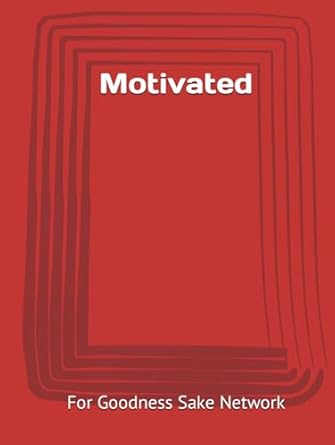Question
Question 1 With reference to the 6 non-discrimination principles, explain how management can promote Fairness, Legitimacy and Integration in the workplace to ensure optimal Work
Question 1
With reference to the 6 non-discrimination principles, explain how management can promote Fairness, Legitimacy and Integration in the workplace to ensure optimal Work Group Processes and Outcomes.
Answer this question in not more than 400 words plus the relevant diagrams or models.
Question 2
Scenario:
In XYZ company all people working at a certain hierarchical level are deemed to have the same values and motivations. When people are hired, they are expected to accept the company's established way of doing things, without question. When management was asked to defend their approach, they found the line of questioning to be threatening and culturally unacceptable.
Required:
With reference to stereotyping, selective perception, and perceptual defence, relate Classical conditioning, Thorndyke's Law of effect, Operant conditioning, and Social Learning Theory ton the above scenario
Answer this question in not more than 400 words plus the relevant diagrams or models.
Question 3
Explain how, as a manager, you would apply the 7 principles of Group Decision-Making to ensure that the basic characteristics of managerial decision-making are fulfilled.
Answer this question in not more than 400 words plus the relevant diagrams or models.
Question 4 (10 marks)
Scenario:
At ABC Company, once you are promoted to manager your role is to ensure that employees get the job done, plain and simple. At XYZ company, a leader is supposed to develop a culture of commitment and contribution so that all employees want to do the best job they possibly can.
Required:
With reference to the Leadership Styles espoused by Blake and Mouton's Managerial Grid (1964) and McGregor's Theories X and Y, explain the differences between transactional and transformational leadership practice at ABC and XYZ.
Answer this question in not more than 400 words plus the relevant diagrams or models
.Question 5
Scenario:
The PQR firm is organized in a steep hierarchy, whereby ultimate authority resides at the top echelon, from where all reward and recognition initiatives emanate. Middle management have the right to dictate or apply some form of punishment when instructed to do so by the top-level management. In the middle ranks are some technical specialists who are looked up to and respected for their specialist skills.
Required:
According to French and Raven, power is a normal part of organisational life. Use the above scenario to explain how the different types of power are at play in PQR and which are more likely to cause resistance, compliance, or commitment on the continuum of employee cooperation.
Answer this question in not more than 400 words plus the relevant diagrams or models.
Step by Step Solution
There are 3 Steps involved in it
Step: 1

Get Instant Access to Expert-Tailored Solutions
See step-by-step solutions with expert insights and AI powered tools for academic success
Step: 2

Step: 3

Ace Your Homework with AI
Get the answers you need in no time with our AI-driven, step-by-step assistance
Get Started


